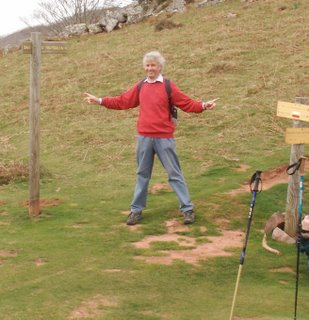304th post - a brief review of British political blogs, blogging & AWN
Some that were once in my list of political blogs worth reading have now sadly departed, become sporadic or, like my own, grown repetitive and predictable. I started reading the things about a year ago but soon grew weary of the gossipy / muckraking sites which serve little purpose other than to denigrate politicians, amuse a few foolish fans and polish their authors' egos. Like talk radio and many message boards they provide hobbies primarily for ranters and dimwits.
But there is also much good, thoughtful stuff around. For example probably at least a quater of the posts featured every day on Bloggers for Labour are worth more than a glance. Too much football though.
It's about 330 days since this blog was launched so I'm about 9% down on my 'one post a day average' target. I'm pleased to have attracted hundreds of comments from scores of people and that very few of them have been abusive. Many of them have raised interesting counter-arguments and some have led me to modify my own position a tad.
I've never made it above 100,000th on Technorati's rating, although I got very close once, and total readership is difficult to assess. But I can be confident that I have fewer regular readers than the popular / populist political blogs. They, in turn, have fewer than the least popular quality UK daily newspaper and even it reaches regularly only about one voter in a hundred.
Although Jon Snow did read my post about his birthday, claims for the influence of political blogging on either 'opinion formers' or uncommitted voters are highly suspect. Close to nil would be my estimate.
Blogging provides a good way of letting off some steam, testing one's arguments and discovering a few like-minded and some unlike-minded people around the world. It's made me admire a little more the commentators who can churn out quality stuff week after week even when there's very little of interest around to comment on. But, in a curious reversal of conventional journalism, there seem to be more writers than readers in the blogosphere.
As Eddie Warring used to say at the end of his idiosyncratic summaries of Saturday afternoon's rugby league on Grandstand: 'and that's all yer getting'...


